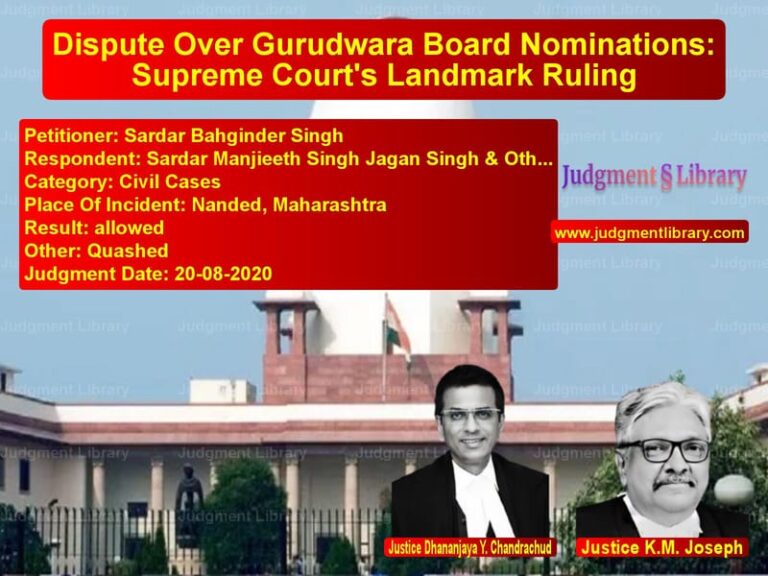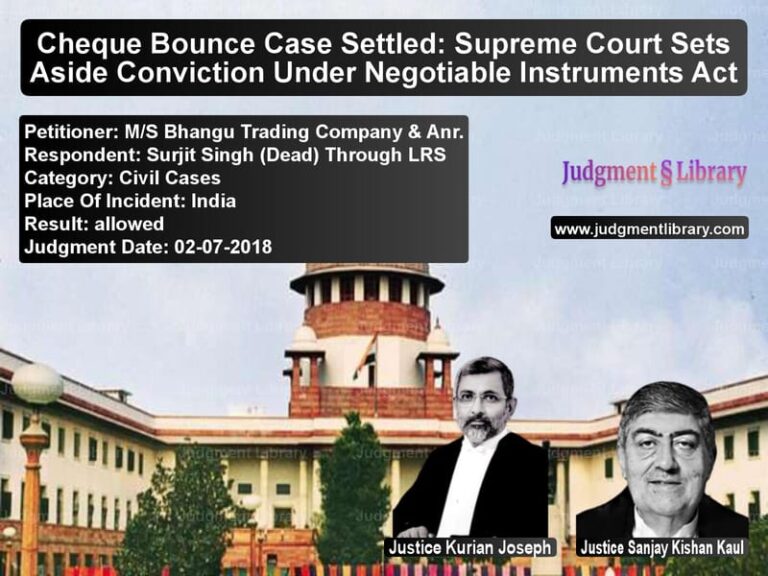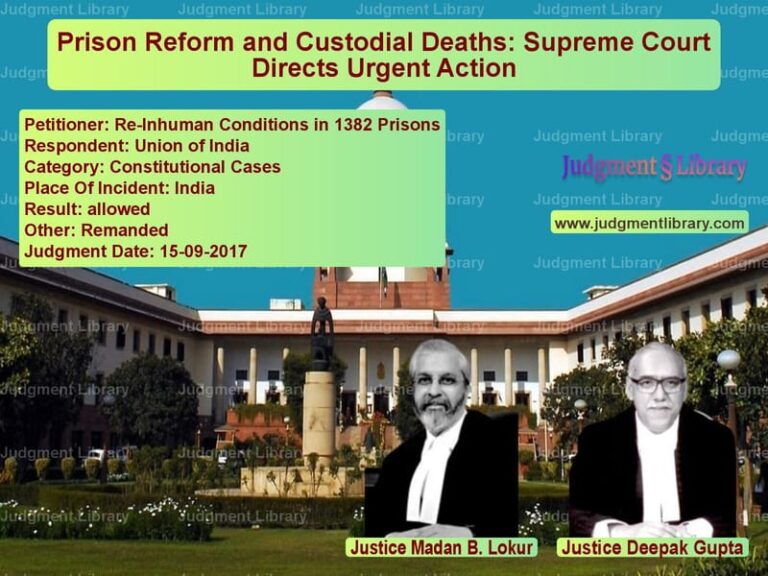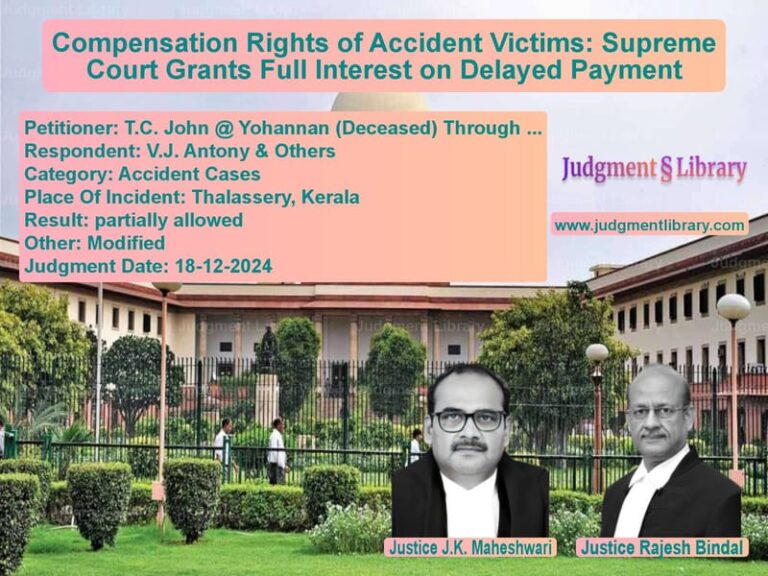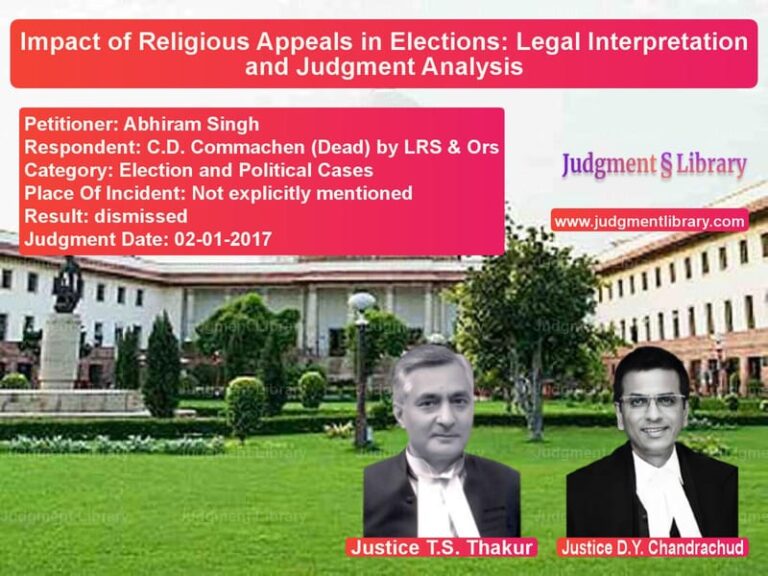State Bank of India Appeals High Court Order Extending Payment Deadline for OTS Scheme
The Supreme Court of India recently dealt with a case that concerns the payment schedule of a One-Time Settlement (OTS) offer made by the State Bank of India (SBI) to Arvindra Electronics Pvt. Ltd. (the borrower). The case is centered around whether the High Court was justified in granting an extension to the borrower for making the balance payment under the OTS Scheme beyond the prescribed deadline.
The background of the case dates back to 2017 when the State Bank of India had sanctioned a cash credit to the borrower. However, the borrower’s account was classified as Non-Performing Asset (NPA) by 2015. In 2017, SBI offered an OTS to the borrower, allowing them to settle the outstanding dues under specific terms, including a deadline to make the payment. Initially, the borrower made a part payment, but failed to meet the subsequent payment deadlines. In response, the Bank did not extend any further deadlines. The borrower then filed a writ petition before the High Court seeking an extension to make the balance payment.
The central issue in this appeal is whether the High Court, while exercising its powers under Article 226 of the Constitution, was correct in extending the payment deadline for the borrower, given the specific terms outlined in the OTS agreement. The Bank argued that such an extension was not permissible under the terms of the contract, and any deviation would render the agreement infructuous.
Here are the key aspects discussed in the case:
Bank’s Argument:
SBI, represented by its counsel Shri Sanjay Kapur, argued vehemently that the High Court had made a significant error by granting the borrower a further six weeks to complete the payment under the OTS Scheme. According to the Bank, the terms of the OTS clearly stated that payments were due by specified deadlines, and any failure to meet these deadlines would invalidate the agreement. The Bank relied on the decision in Bijnor Urban Cooperative Bank Limited v. Meenal Agarwal (2021), which highlighted that benefits under an OTS Scheme cannot be claimed as a matter of right. The Bank also contended that granting such extensions could lead to rewriting the contract, which is not permissible under the Indian Contract Act, Section 62. Furthermore, SBI emphasized that OTS schemes are non-discriminatory and should be uniformly applied to all borrowers.
Borrower’s Argument:
The borrower, represented by Shri D.P. Singh, opposed the appeal, stating that the Bank had acted arbitrarily in refusing to extend the payment deadline while offering extensions to other borrowers under similar circumstances. The borrower argued that such differential treatment amounted to an arbitrary action that was subject to judicial review. Additionally, the borrower pointed out that it had made substantial payments, including selling properties to meet the OTS obligations. They further argued that the High Court’s intervention was necessary due to the Bank’s failure to set clear and consistent guidelines for granting extensions.
Legal Precedents:
In its arguments, the Bank referred to previous rulings that set out principles for judicial intervention in contractual agreements. The Bank cited the case of Bijnor Urban Cooperative Bank Limited (2021) to assert that no borrower has an inherent right to benefit from an OTS Scheme and that any decision to extend time under such schemes must adhere to specific eligibility criteria. The Bank also emphasized that the High Court had failed to follow the binding precedent set by this Court, particularly the Sardar Associates case (2009), which dealt with the non-discretionary nature of OTS schemes and the inability of courts to modify such contracts.
The borrower, however, referred to the case of Anu Bhalla v. District Magistrate, Pathankot, to argue that the High Court was correct in granting an extension due to the Bank’s arbitrary refusal to extend the same treatment to the borrower as it had extended to others. The borrower also claimed that the Bank’s refusal was against the spirit of the Reserve Bank of India’s guidelines for OTS settlements.
Supreme Court’s Ruling:
The Supreme Court reviewed the arguments and came to a conclusion that the High Court was not justified in extending the time for payment under the OTS Scheme. The Court emphasized that the grant of benefits under an OTS Scheme cannot be claimed as a matter of right, and any extension of time beyond the prescribed deadlines would result in modifying the contract, which can only be done by mutual consent, as per Section 62 of the Indian Contract Act. The Court observed that while the borrower did make some payments, it failed to comply with the full payment schedule laid out in the OTS, and the High Court’s decision to grant further time was not in accordance with the terms of the OTS Scheme.
The Court also noted that the Bank had consistently rejected extensions and had made efforts to enforce the terms of the agreement. In this case, the Court found that the High Court had exceeded its jurisdiction under Article 226 of the Constitution by attempting to modify the contract between the Bank and the borrower. Accordingly, the Supreme Court quashed the High Court’s order and dismissed the writ petition filed by the borrower.
Conclusion:
The ruling in this case clarifies the limits of judicial intervention in contractual agreements, particularly concerning OTS Schemes. The decision reinforces that such schemes must adhere to the conditions outlined in the contract and that courts cannot arbitrarily modify or extend these terms. The case serves as an important reminder that parties entering into OTS agreements must comply with the terms and deadlines, and any requests for extensions should be supported by clear and consistent criteria.
Petitioner Name: State Bank of India.Respondent Name: Arvindra Electronics Pvt. Ltd..Judgment By: Justice M.R. Shah, Justice Krishna Murari.Place Of Incident: Chandigarh, Punjab.Judgment Date: 03-11-2022.
Don’t miss out on the full details! Download the complete judgment in PDF format below and gain valuable insights instantly!
Download Judgment: state-bank-of-india-vs-arvindra-electronics-supreme-court-of-india-judgment-dated-03-11-2022.pdf
Directly Download Judgment: Directly download this Judgment
See all petitions in Bankruptcy and Insolvency
See all petitions in Corporate Compliance
See all petitions in unfair trade practices
See all petitions in Judgment by Mukeshkumar Rasikbhai Shah
See all petitions in Judgment by Krishna Murari
See all petitions in allowed
See all petitions in supreme court of India judgments November 2022
See all petitions in 2022 judgments
See all posts in Corporate and Commercial Cases Category
See all allowed petitions in Corporate and Commercial Cases Category
See all Dismissed petitions in Corporate and Commercial Cases Category
See all partially allowed petitions in Corporate and Commercial Cases Category


